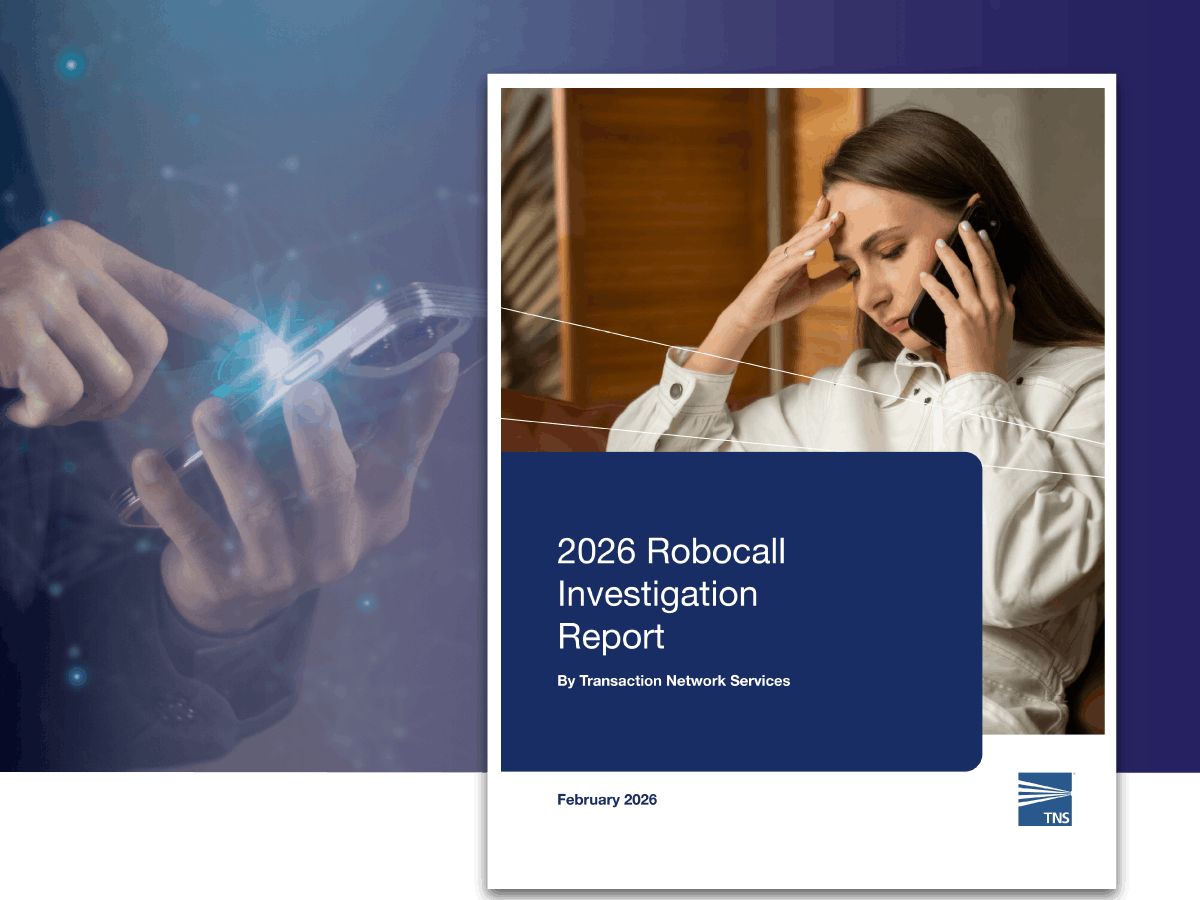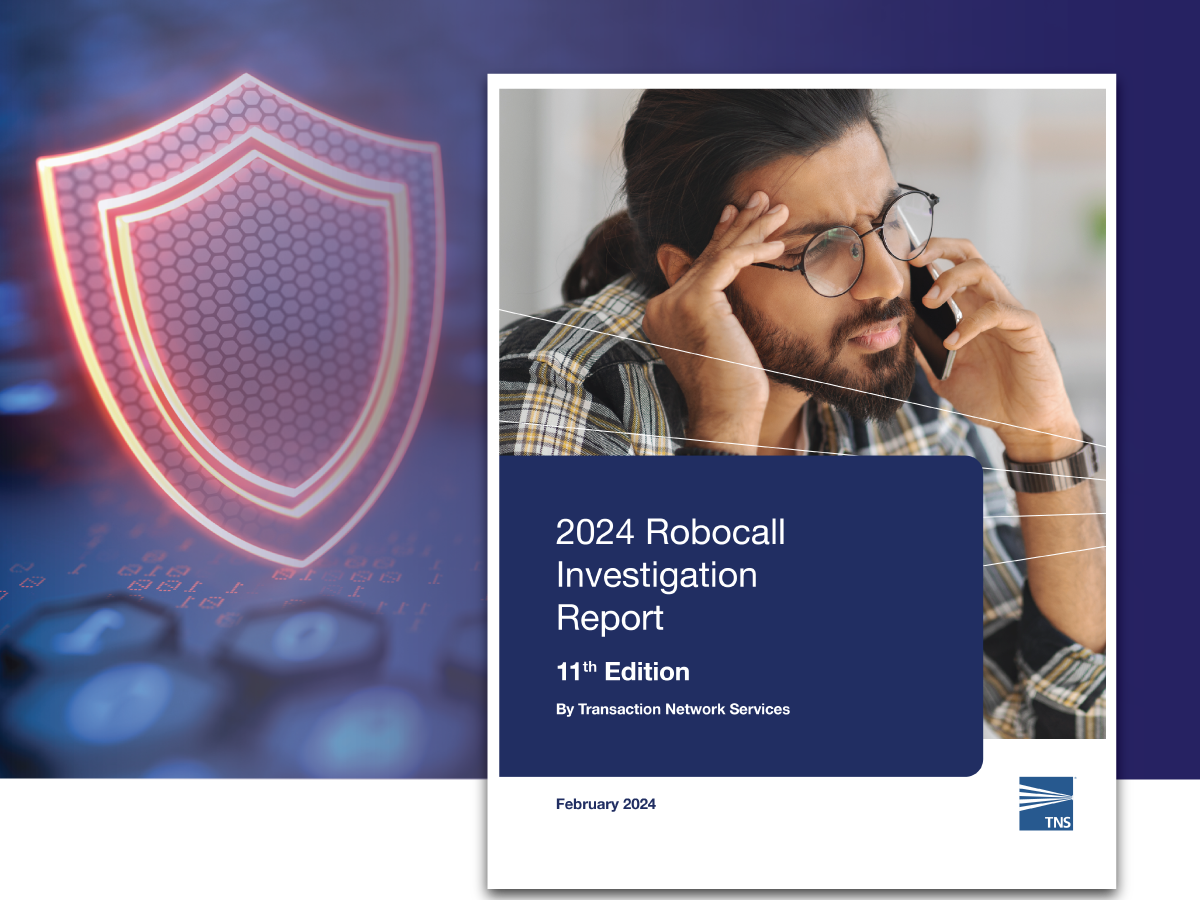Today, Transaction Network Services (TNS) released its 2024 Robocall Investigation Report, a holistic, data-driven analysis of robocall trends from the previous year. The Report shows the top seven US carriers (Verizon, UScellular, T-Mobile, Lumen, Comcast, Charter and AT&T) continue to make strides on multiple fronts when it comes to protecting subscribers from unwanted robocalls.
Signed traffic between Tier-1 carriers increased to 85% in 2023, according to TNS’ Report. However, despite positive robocall mitigation momentum industry-wise, data reveals a persistent gap between Tier-1 carriers and smaller carriers when it comes to signing voice traffic: only 17% of calls from Tier-1 to smaller carriers were delivered with a signature last year. Call signing through STIR/SHAKEN refers to calls traveling through interconnected phone networks having their caller ID “signed” as legitimate by originating carriers and validated by other carriers before reaching consumers.
“2023 saw smaller operators completing their obligations to implement STIR/SHAKEN, with over 120 operators now using TNS Call Guardian Authentication Hub to do so. There is clear evidence STIR/SHAKEN has been a rising tide lifting all boats to the benefit of consumers,” said Denny Randolph, President of TNS Communications Market. “That said, our report acknowledges that smaller carriers are benefiting from their deployments of the framework at a slower rate. To ensure the full benefits of STIR/SHAKEN are realized requires strategic investments in network transformation to improve IP connectivity.”
The latest edition of TNS’ Robocall Investigation Report includes several new robocall insights and trends to inform carriers, regulators, policymakers and the industry in 2024:
Tier-1 Carriers Seeing the Value from STIR/SHAKEN Signatures
Unwanted robocalls from numbers originating from the top seven carriers dropped 2% year-over-year in 2023. Not only are the majority of calls between Tier-1 carriers signed, but 95% of this voice traffic is signed with the highest level of attestation (A) – when both the caller and phone number being called are authenticated by the service provider. Such progress has diminished popular spoofing tactics of bad actors and enhanced the ability of analytics engines to differentiate good and bad callers.
Gap Remains Between Tier-1 Carriers and Smaller Carriers
While smaller carriers have improved their signed traffic overall (21% of calls were signed in 2023, up from 15% in 2022), a wide gap persists in total signed traffic from Tier-1 carriers. To keep pace with call authentication and robocall mitigation gains made by Tier-1 carriers, smaller operators should continue a digital transformation path that improves SIP signaling, and tap industry-leading TDM Link Replacement solutions to convert to the signaling protocol required to support STIR/SHAKEN.
AI Battle Emerges Between Carriers and Bad Actors
2023 saw bad actors with access to Generative AI increasingly launch convincing AI voice (and text) cloning scams targeting consumers and businesses in the US and globally. Combating more sophisticated scams requires partnering with industry leaders to deploy novel AI technologies. Last year, TNS launched AI Labs, a pioneering initiative that will research and develop new AI solutions – including voice biometrics, predictive call analytics, generative AI and AI SMS detection – to help carriers stay ahead of bad actors.
Businesses Assume Proactive Role Protecting Customers and Their Brand
Enterprises and service providers supporting contact center operations and other business processes increasingly recognize the threat spoofed calls represent to brand reputation, customer experience, and a company’s bottom line. Enterprise authentication complements STIR/SHAKEN and broader robocall mitigation efforts by strengthening the authentication and verification process. Growing adoption of TNS Enterprise Authentication and Spoof Protection reflects demand for enhanced solutions that address spoof calls.
Denny Randolph added, “Carrier progress with call signing, IP connectivity, and broader digital transformation will be critical as the year unfolds. Rising threats from election disinformation robocalls ahead of the Presidential election, the growing accessibility of AI voice cloning tools, and the familiar cadence of seasonal tax, insurance, healthcare and holiday scams, pose risks across multiple fronts to consumers.”
Download TNS 2024 Robocall Investigation Report to gain access to full year data and robocall trend insights.
Download TNS’ Robocall Investigation Report
Gain exclusive insights into robocall trends and tactics, with line type data comparisons guiding your strategy in 2024.





